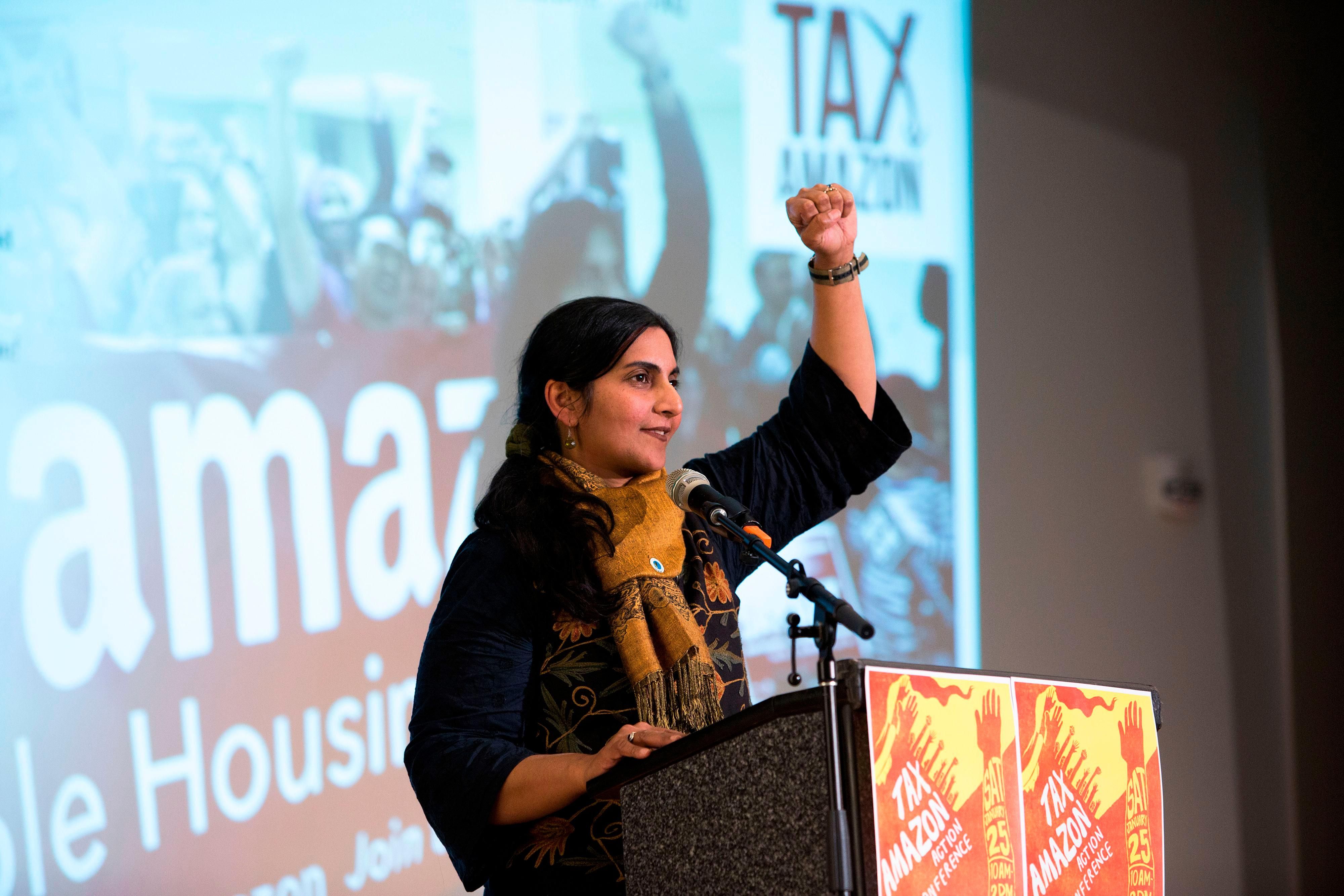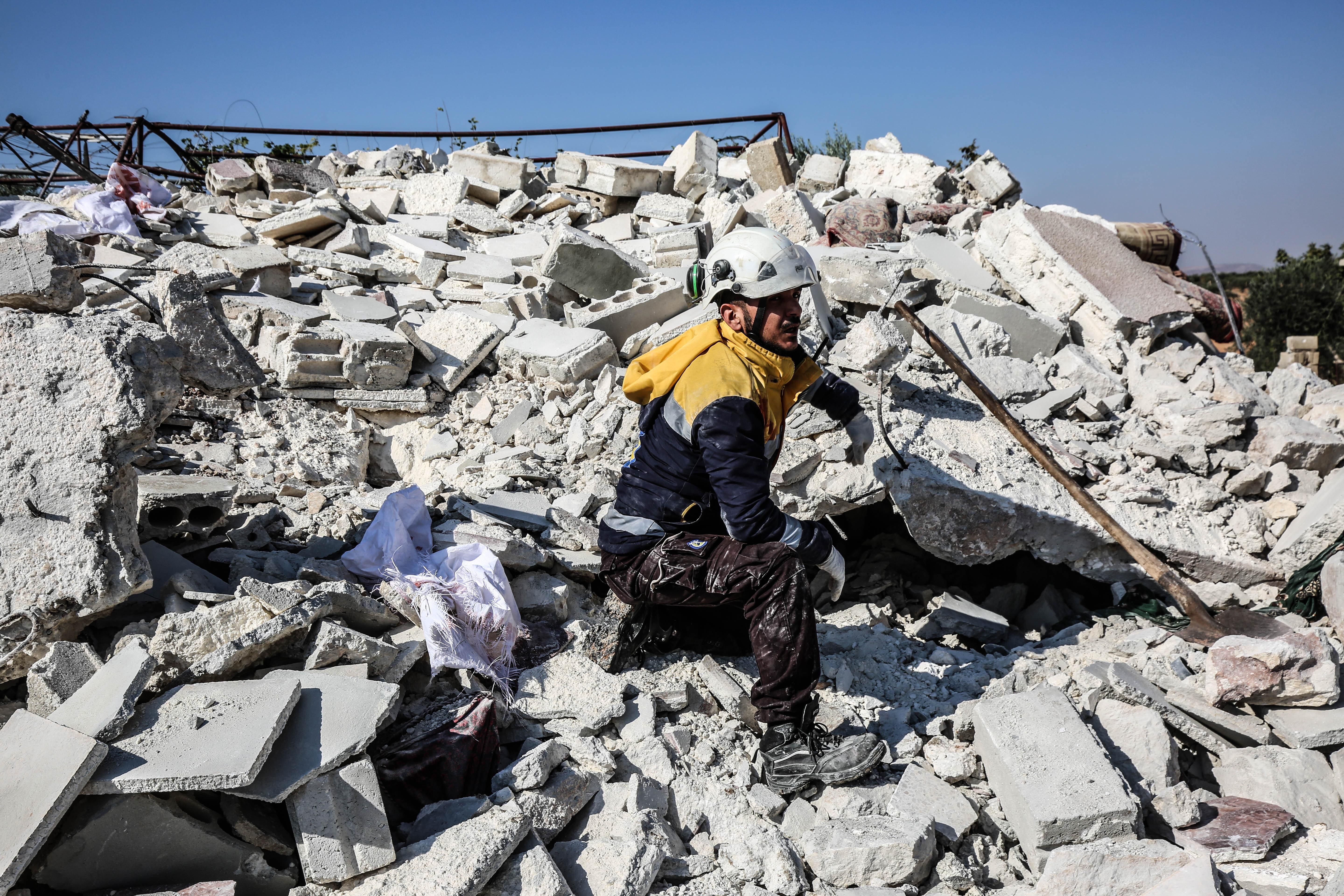"As our world has become increasingly dependent on digital spaces during the Covid-19 pandemic, it's critical that Twitter meet this moment with demonstrated commitment to improving the online experiences of all users, regardless of their identity."

A resident of the Casa Nepal safe house stands in the upstairs common area on May 8, 2018 in Kathmandu, Nepal. The shelter houses approximately 60 women and their children annually.
(Photo: Lauren DeCicca/Getty Images)
JESSICA CORBETT
JESSICA CORBETT
COMMONDREAMS
December 8, 2021
Amnesty International on Tuesday urged reforms after a new report from the human rights group found that "for many women and nonbinary persons, Twitter is a platform where violence and abuse against them flourishes, often with little accountability."
The latest Twitter Scorecard follows multiple other Amnesty reports released since 2018 detailing how the tech giant has not upheld "its responsibility to protect women's rights online by failing to adequately investigate and respond to reports of violence and abuse in a transparent manner, leading many women to silence or censor themselves on the platform."
"Twitter is still falling short on its promises to protect users at heightened risk of online abuse."
Like a previous scorecard published in September 2020, the new report uses 10 indicators across four categories—transparency, reporting mechanisms, the abuse report review process, and privacy and security features—to track Twitter's global progress.
Only one of Amnesty's 10 broad recommendations has been implemented: "Improve the appeals process by offering more guidance to users on how the process works and how decisions are made."
Seven of the group's recommendations are considered a "work in progress" while the remaining two—both related to transparency—have not been implemented.
The report recognizes that Twitter has "increased the amount of information available through their Help Center and transparency reports, while also launching new public awareness campaigns, expanding the scope of their hateful conduct policy to include language that dehumanizes people based on religion, age, disability or disease, and improving their reporting mechanisms and privacy and security features."
"These are important steps; that said, the problem remains," the report continues. "Twitter must do more in order for women and nonbinary persons—as well as all users, in all languages—to be able to use the platform without fear of abuse."
Amnesty International on Tuesday urged reforms after a new report from the human rights group found that "for many women and nonbinary persons, Twitter is a platform where violence and abuse against them flourishes, often with little accountability."
The latest Twitter Scorecard follows multiple other Amnesty reports released since 2018 detailing how the tech giant has not upheld "its responsibility to protect women's rights online by failing to adequately investigate and respond to reports of violence and abuse in a transparent manner, leading many women to silence or censor themselves on the platform."
"Twitter is still falling short on its promises to protect users at heightened risk of online abuse."
Like a previous scorecard published in September 2020, the new report uses 10 indicators across four categories—transparency, reporting mechanisms, the abuse report review process, and privacy and security features—to track Twitter's global progress.
Only one of Amnesty's 10 broad recommendations has been implemented: "Improve the appeals process by offering more guidance to users on how the process works and how decisions are made."
Seven of the group's recommendations are considered a "work in progress" while the remaining two—both related to transparency—have not been implemented.
The report recognizes that Twitter has "increased the amount of information available through their Help Center and transparency reports, while also launching new public awareness campaigns, expanding the scope of their hateful conduct policy to include language that dehumanizes people based on religion, age, disability or disease, and improving their reporting mechanisms and privacy and security features."
"These are important steps; that said, the problem remains," the report continues. "Twitter must do more in order for women and nonbinary persons—as well as all users, in all languages—to be able to use the platform without fear of abuse."
Michael Kleinman, director of technology and human rights at Amnesty International USA, said in a statement Tuesday that "despite our repeated calls to improve their platform, Twitter is still falling short on its promises to protect users at heightened risk of online abuse."
"For a company whose mission is to 'give everyone the power to create and share ideas instantly without barriers,'" he continued, "it's become abundantly clear that women and/or marginalized groups disproportionately face threats to their online safety."
In one recent, high-profile example, critics called for Congressman Paul Gosar (R-Ariz.) to be censured or even expelled from the U.S. House of Representatives after he tweeted an edited anime video of him killing Congresswoman Alexandria Ocasio-Cortez (D-N.Y.).
"As our world has become increasingly dependent on digital spaces during the Covid-19 pandemic," Kleinman added, "it's critical that Twitter meet this moment with demonstrated commitment to improving the online experiences of all users, regardless of their identity."
As U.N. Women and civil society groups noted last month on the International Day Against Violence Against Women, gender-based violence has increased throughout the pandemic—just as experts had warned it would.
The scorecard's release comes on the heels of a new global campaign launched last week by the United Nations Population Fund (UNFPA) to demand protection from online violence, particularly for women, girls, racial and ethnic minorities, the LGBTQ+ community, and other marginalized groups.
The "Bodyright" campaign highlights that corporate logos and copyrighted intellectual property receive greater protection online than people's bodies and draws attention to issues such as cyberstalking, doxxing, hate speech, and the nonconsensual use of images and video.
"Relentless, borderless, and often anonymous—the online world is the new frontier for gender-based violence," said Dr. Natalia Kanem, UNFPA's executive director, in a statement. "It's time for technology companies and policymakers to take digital violence seriously."
The National Domestic Violence Hotline is 1-800-799-SAFE (7233) and a live chat service is available at www.thehotline.org. Those seeking support can also text START to 88788. All services offer 24/7, free, and confidential support.
This post has been updated with details about an incident involving two members of Congress.
Our work is licensed under Creative Commons (CC BY-NC-ND 3.0). Feel free to republish and share widely.
The "Bodyright" campaign highlights that corporate logos and copyrighted intellectual property receive greater protection online than people's bodies and draws attention to issues such as cyberstalking, doxxing, hate speech, and the nonconsensual use of images and video.
"Relentless, borderless, and often anonymous—the online world is the new frontier for gender-based violence," said Dr. Natalia Kanem, UNFPA's executive director, in a statement. "It's time for technology companies and policymakers to take digital violence seriously."
The National Domestic Violence Hotline is 1-800-799-SAFE (7233) and a live chat service is available at www.thehotline.org. Those seeking support can also text START to 88788. All services offer 24/7, free, and confidential support.
This post has been updated with details about an incident involving two members of Congress.
Our work is licensed under Creative Commons (CC BY-NC-ND 3.0). Feel free to republish and share widely.














